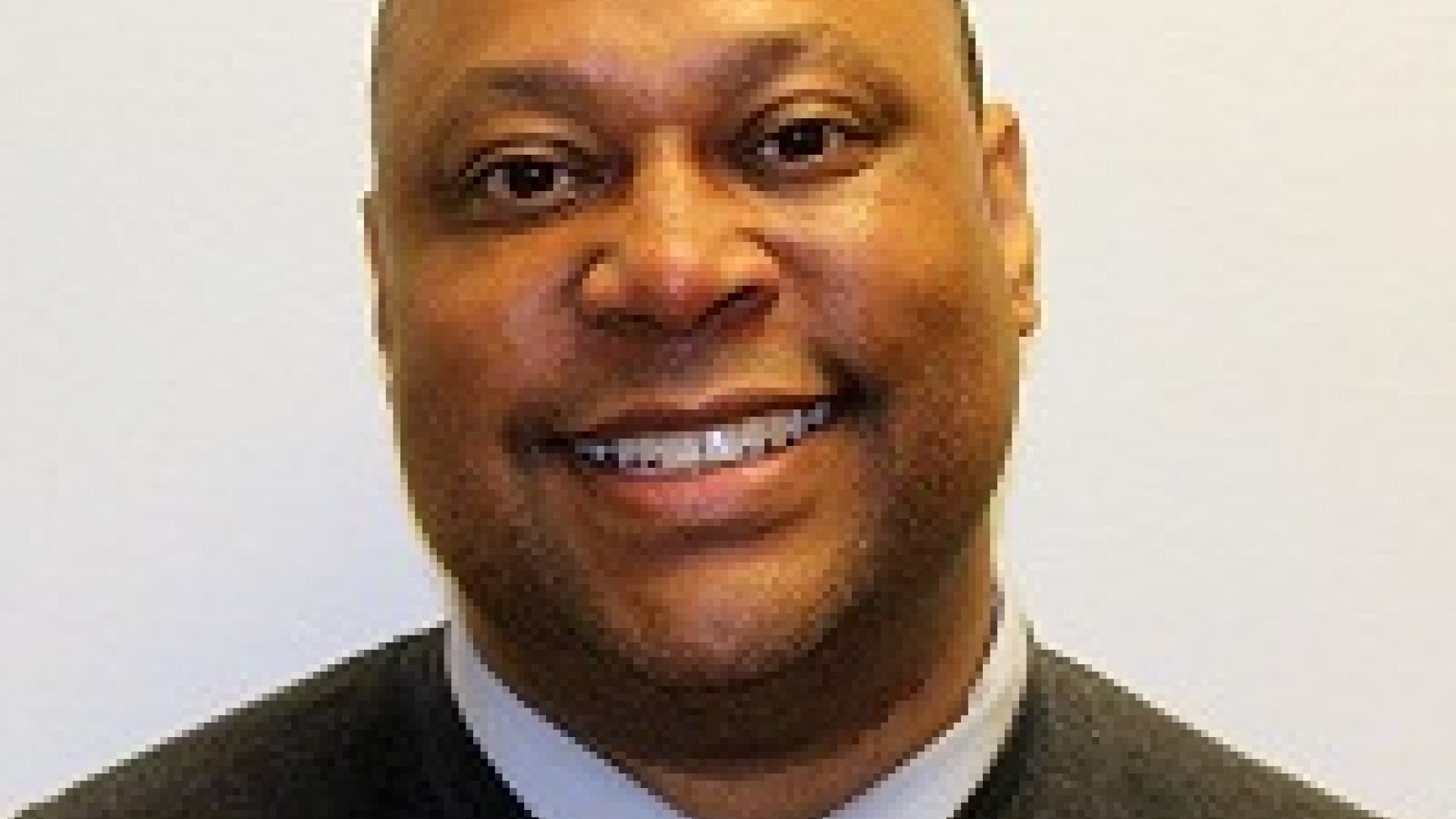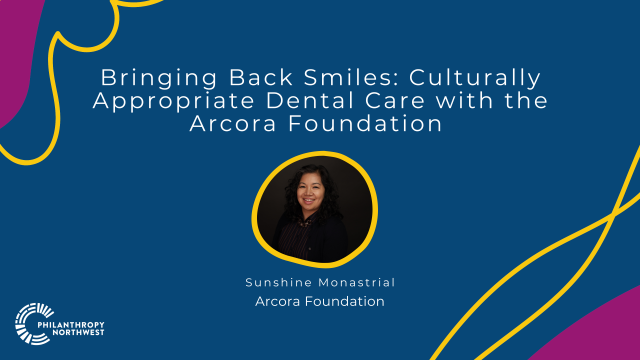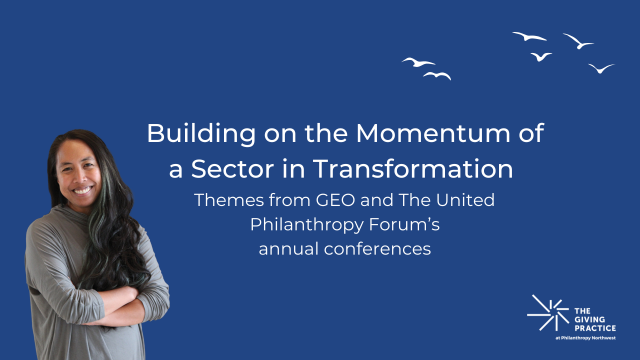
Dalian Yates, Momentum Fellow
Remember that saying, “It takes a village to raise a child?" Growing up in the projects in Tampa, Florida, that was the absolute truth. I had a large family and we were a part of a tight-knit community. Every time I would get in trouble for misbehaving in school — yes, I was quite mischievous as a child! — by the time I got off the school bus, I had a line of family members and neighbors waiting and ready to discipline me. I am thankful. That village saved this southern boy from a tumultuous life of violence, addiction and multigenerational oppression.
There's also another saying: "Pull yourself up by your own bootstraps." That may have worked for you or your parents, but many of those "bootstraps" are no longer available today. The village, the neighborhood, that place where people looked out for each other and supported each other, sharing joys and sorrows, good times and bad times, especially in many black communities, is no more. And we're paying a really big price for that loss.
Today, black people and communities of color are pawns in the game of politics. I’ve spent most of my professional career working with adjudicated and at-risk teens; most have been black and Latino, all from broken homes and broken communities. Many have ended up in prison. These are boys who could have realized and achieved their dreams, had their families and communities rallied by their side like mine did. Instead, not only did their families and communities fail them, but so did the promise of the American Dream.
Black Lives Matter
I was still living in Tampa, Florida in 2012 when Trayvon Martin, a 17-year-old black, unarmed teenager, was shot and killed by neighborhood watch volunteer, George Zimmerman. This was a defining moment for me. I knew that I had to move my sons — young black boys — out of the south to keep them safe and alive. And in many ways, the end of Trayvon’s life was the beginning of my own. His death sparked purpose. I wanted to be a part of the movement that declared "Black Lives Matter."
In 2014, as my family watched from our home in Eugene, Oregon, the world bore witness to highly-publicized killings of more black boys and men. Michael Brown in Ferguson, Missouri. Eric Garner in Staten Island, New York. Tamir Rice in Cleveland, Ohio. Collectively, their deaths symbolize the larger realities that black men and boys face: consistent experiences with racial profiling, disproportionate rates of arrest and incarceration, lack of educational opportunities and resources, and inadequate job prospects.
Black men were nine times more likely than other Americans to be killed by the police in 2015. Despite making up only 2% of the total US population, black men between the ages of 15 and 34 consist of more than 15% of all deaths currently being investigated for the use of deadly force by police. Those numbers are staggering — we have to take notice. As a nation, we must collectively agree that black lives matter in order to end the long standing structural inequities that have resulted in decades of poor life outcomes for black men and boys.
A Growing Movement
While there is a growing movement around the country actively seeking solutions, we can do more. I transitioned from social services to the philanthropic sector and joined Philanthropy Northwest's Momentum Fellowship to do just that — more. I have lost faith in our government officials that they can truly take a common-sense approach to social justice; thus improving the life outcomes for black men and boys. However, I am very hopeful that philanthropy is poised to do so with vigor and haste. Philanthropy can move us from increased attention on structural inequities to increased investment that creates lasting progress for black men and boys.
Foundation funding explicitly designated to benefit black men and boys has increased in recent years, rising from $28.6 million in 2010 to nearly $64.6 million in 2012. We must continue this trend. We know what works. However, the majority of philanthropy's work falls outside the framework of a black male initiative or portfolio. As such, work that claims to serve black males but does not make a targeted effort to reach them often works well for every population except black males.
My five recommendations for the philanthropic sector:
- Philanthropy needs to understand that what is happening to black men and boys requires an urgent response by the philanthropic community. Foundation executives need to “shake things up” by hiring more black individuals to leadership positions and appointing more black professionals to their boards. What I know is that black leaders will address black issues.
- Philanthropy needs to diversify its donor base. No one gives to black issues and the black community more than black philanthropists. Black Americans have produced the steadiest growth of new identity-based charitable funds over the last four decades. Simply put, let’s lean on black Americans and black philanthropist to give to black issues and rebuild their communities.
- Philanthropy should increase and sustain investments that strengthen the field of black male achievement. This includes a program/initiative within the institution and/or grantmaking guidelines that require funding for black men and boys and black communities. It must be explicit funding targeted directly to black men and boys.
- Philanthropy should increase investments in strategic communications and messaging efforts about black men and boys. We need an alternative to the narrative that presents black men and boys as liabilities or threats to our society.
- Philanthropy must disjoint and disrupt the school-to-prison pipeline for black students. For far too many students of color, entering the bars of incarceration begins with a referral from the classroom to the courtroom. In order to drastically alter the school-to-prison pipeline, philanthropy must take strategic action.
Black men and boys are assets to their communities and our country. As a nation, we cannot truly prosper when any group of people are left behind and forced to exist on the fringes of society. The well-being of black men and boys has a direct influence on the strength of their families, communities and our nation as a whole. Our communities will only prosper if all of us can succeed and reach our full potential. I know that’s what I want for my boys, my children. What about you?
Thank You
I've been asked to share the personal sacrifices I made to be a part of the Momentum Fellowship, but I refuse to do that. This fellowship opportunity is bigger than my trials. Instead, I would like to give a special “shout out” to my wife, Kelli. She is my hero in all of this and I cannot do what I do, day end and day out, without her commitment to my professional development/career and our family. She is a stay-at-home mom (and the love of my life) literally raising our four boys — ages 16, 14, 10 and 4 — and 6-month-old baby girl by herself while I work on the Oregon Community Foundation's equity, diversity and inclusion team.
Kelli, I love you very much! Thank you for being such a great mother, wife and friend. Thank you for the daily sacrifices you make, allowing me to do what I do.
Dalian Yates is a Momentum Fellow hosted by the Oregon Community Foundation. Read more about the Momentum Fellowship on our website, and stay tuned for more blog posts from our first cohort.



Comments
Thank you for sharing this
Thank you for sharing this Dalian.
Thank you for writing and
Thank you for writing and sharing this action plan.
Thank you Dalian for sharing
Thank you Dalian for sharing your thoughts. As a person who works for a non-profit that primarily serves African American youth and families (Self Enhancement, Inc.), I appreciate your recommendations for the philanthropic community to bring awareness to the needs of our community and the benefits to our society as a whole if we work collaboratively to reduce the disparities that exist.
Dalian, you have done a
Dalian, you have done a fantastic job articulating the problems and needs our society faces. You have also hit a target in highlighting how our systems in this country continue to fail. With the upcoming election it seems to be getting worse. Being a husband, father, and responsive, responsible black man within this society is living in a war zone. Raising sons is a most challenging prospect in a most challenging time. I have young daughters and live DEEPLY concerned with the state of this nation. But as you say, significant resources exist to be marshaled to these important tasks. I applaud the work you're doing, your courage and conviction. Stay strong for those boys and that baby girl!
Dalian--you are such an asset
Dalian--you are such an asset to OCF! I appreciate your strong voice on this important issue. Keep up the great work.
Dalian, clearly your
Dalian, clearly your perspective and message is so relevant and is resonating with so many of us. I appreciate your willingness and courage to share your message and perspective. I know the community will continue to see great things from you. I am so glad we get to journey with you during your time with OCF
Well done. This is a very
Well done. This is a very important message. Nice to see your smiling face. It was a pleasure to work with you albiet too briefly. Stop by the bird and say hello when you are in town
Dalian, this is wonderfully
Dalian, this is wonderfully written and I am so proud of what you are doing. In addition to the points you make, I would add that the stats on black on black murders are equally staggering and deserve concentrated attention and effort by all of us. Its as if we don't all fully accept our own value within the black community as well.
At the risk of antagonizing
At the risk of antagonizing the status quo, Oregon philanthropy excludes and subdues local professional BMAchievement (BMA) as career partners. The social oppression is a deliberate and systematic strategy to suppress, disempower, and render invisible people who otherwise can be productive members of an organization or community. No greater example is found with black men’s relative absence and gross underrepresentation in local philanthropy and the social sector. Review any Oregon’s foundation employee roster and count the number of black male program officers. As a Momentum Fellow, Dalian, you are an outlier.
Kudos to Meyer Memorial Trust (MMT) who finally recruited, Charles Wilhoite, a black male board member. He is a proxy program officer for all practical purposes having received $50K compensation in exercising his duties there one year as listed in the 3/31/14 IRS Form 990. Perhaps that’s how he is counted as a program officer for MMT’s AAP or EEOP. Nonetheless, it is about time for his BMA presence albeit short of optimal as a parity goal.
For example, unless I am mistaken, MMT (founded in 1982) has yet to ever hire a non-Latino male program officer of African American descent (with the possible exception of Mr. Wilhoite if he is counted as a program officer beyond his board membership), at least in more recent memory. If true, the hiring rejection rate, from an applicant pool trend analysis of black men responding to MMT program officer job announcements, is 100%, a longitudinal and abysmal no brainer.
What other group has such numbers bereft of that job title for that long? How long will the trend continue for an organization claiming avowal to an equity lens?
Nationally, if lucky enough to join a foundation, Black men are disproportionately hired on as leased employees, interns, or other term-limited, contingent arrangements with subordinated remuneration – not to knock the heft of your Momentum Fellowship Dalian. On occasion, foundation-staffing reductions in force (RIFs) have also unduly affected representation adversely. I know as a former program officer for two foundations to resiliently weather that detritus.
I hope OCF considers you a keeper after you complete your fellowship if you so choose to stay. Oregon deserves your leadership strength, perspective, passion, proven accomplishment, and mission to serve! Hopefully soon you will have other local BMA program officers to work with as comparators have.
#BMA Lives Matter in OR Philanthropy – a great value proposition!
A cogent and thoughtful
A cogent and thoughtful strategy for addressing an endemic problem that must be solved now. Mr. Yates, you are clearly an emergent leader in the field of philanthropy with a refreshing yet innovative voice. I wish you much success. We need more thinkers like you.
Thank you for your generosity of thought and deed.
Thanks for writing this
Thanks for writing this article, and for the refreshing openness, honesty, and clarity in your presentation of solutions. I agree wholeheartedly with both the issue you illuminate and the solutions you pose. Philanthropic communities must join in the Black Male Achievement social justice efforts with a sense of urgency and fund the growth of community based efforts that focus on building stronger more connected communities. These communities can then, in turn, hold other stakeholders (like government entities) accountable for the policies, practices, and procedures that currently lead to negative outcomes. These communities will also be the support needed for community members to develop a deep resilience.
Your perspectives and
Your perspectives and recommendations are greatly appreciated. We are fortunate to benefit from your dedication, experience and knowledge.
Beautifully Stated my friend.
Beautifully Stated my friend. Beautifully Stated.
It was a sobering pleasure to
It was a sobering pleasure to read your thoughtful, informed and hopeful article focused on Black Male Achievement efforts and longer term solutions to address the epidemic of intention and historical making; loss of Black lives at the hands of those who don't consider Black men valuable or of purpose. Although your Momentum Fellowship suggests you're fairly new to philanthropy, your vision is clearly steeped in invaluable experiences and expertise. You have chosen the perfect platform to view and elevate the call for justice and opportunity for Black men and boys, and I'd add ensuring funders and the philanthropy field recognize the need to address the dangers also experienced by these males' larger communities and families, which includes Black women and girls who are their sisters, daughters, nieces, aunts, mothers and partners.
I would hope that your presence at Oregon Community Foundation is valued and allows you to bring your your intelligence and passion to influence and inform grantmaking; that it's seen as a 'value added' asset. Please consider me and MRG Foundation as professional allies and supporters early in your Fellowship. MRG has 40 years moving a focused and strategic agenda that has seeded and supported the work of numerous grassroots activists and their organizations who believe in and are working to realize the just Oregon you are proposing. I wish you continued good luck, that you place more of your thinking and vision in front of us, and that you prosper within and outside of OCF. Call on me anytime for support and appreciation.
Great article and dialogue
Great article and dialogue above about the underutilized and over criminalization of Black males in the PNW. I would only add that celebrating the successes are just as important as identifying the opportunities if we hope to change regional perspectives about black men. We should spend time and resources making sure young men know the names D'Wayne Edwards, Michael Gray, Ben Berry, Roslyn Hill and Carl Talton. You can't be what you can't see.